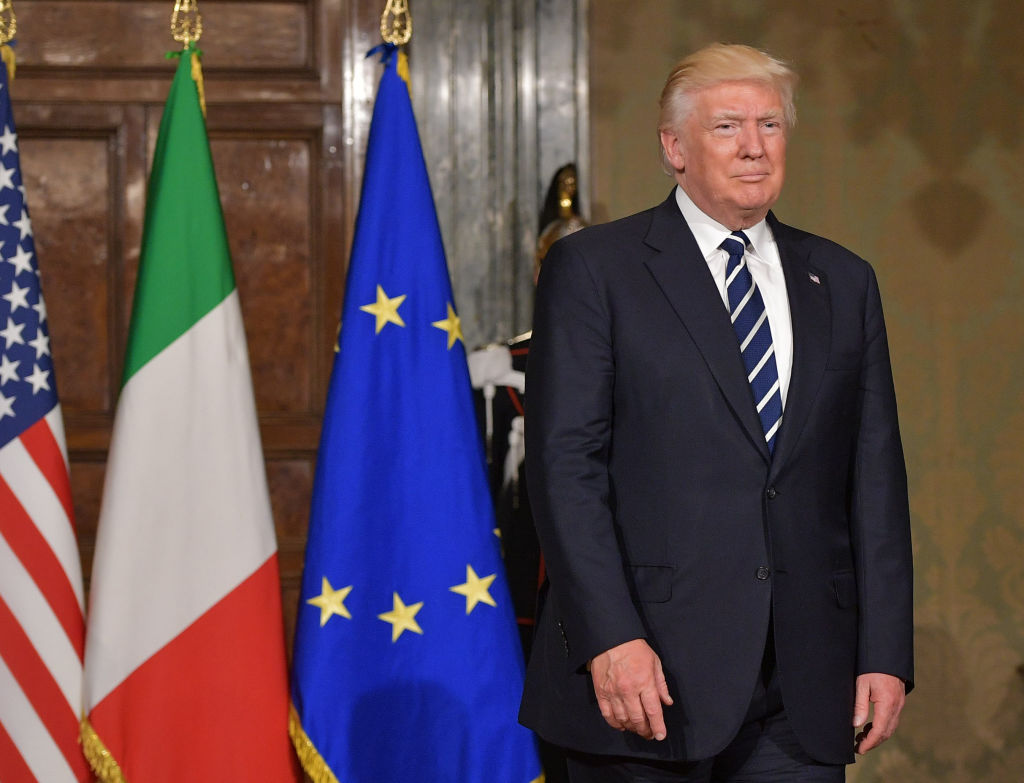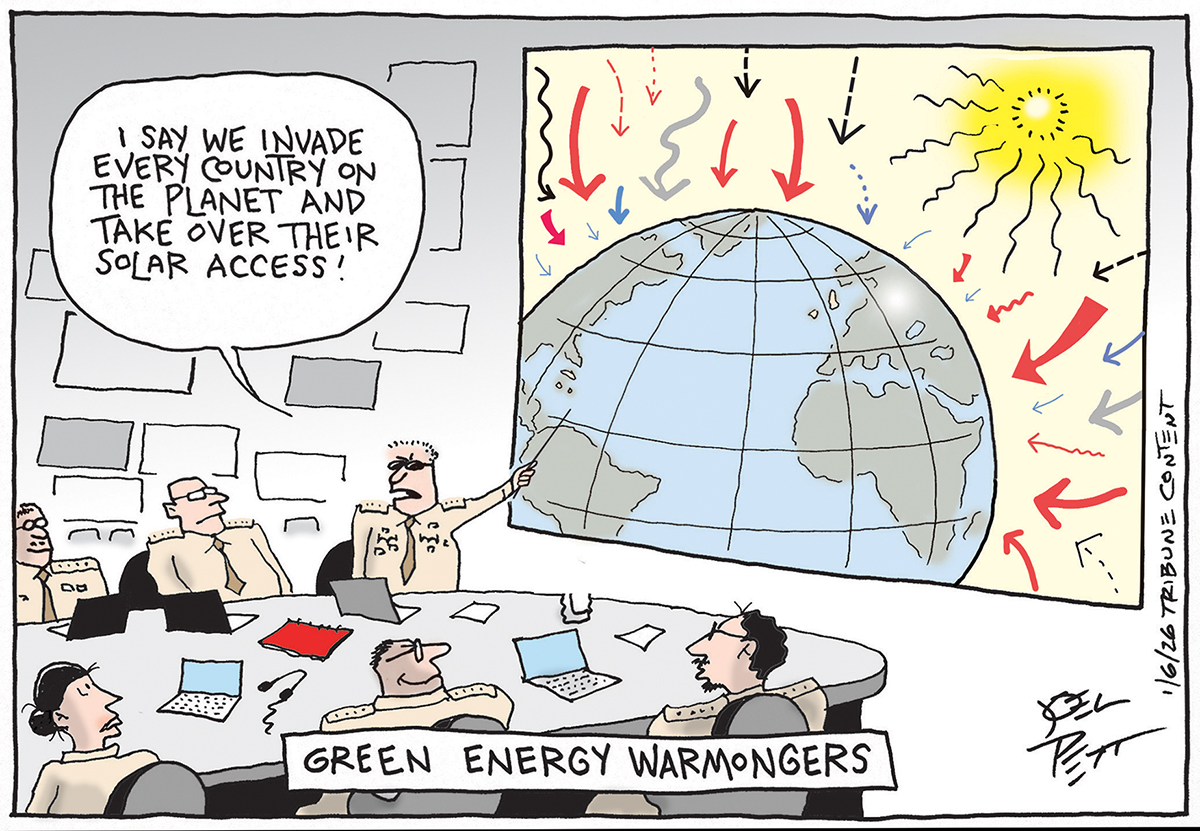Trump's Twitter has been conspicuously calm on his overseas travels. There's a reason for that.


Since President Trump left the U.S. for Saudi Arabia, Israel, and Europe on Friday, his Twitter feed has been uncommonly restrained and professionally political. Some observers explain this lull by pointing to what The Wall Street Journal referred to Friday as a Twitter "intervention" by White House aides worried the president was putting himself in legal jeopardy, while others speculate that Trump doesn't have access to the same cable news channels abroad that he watches and reacts to at home. Politico has another explanation:
For four straight days, President Donald Trump did not live-tweet the cable shows. He didn't mention his unlikely electoral win. And in visits to two countries where he was greeted with great fanfare, he never once complained about being treated unfairly. Trump's relatively successful swing through the Middle East was due to the fact that, for the most part, he didn't get in his own way. It was also the result of months of careful planning. A decision was made early on to visit a part of the world where Trump is venerated and feared, and to pack his schedule so that he mostly stayed on message and, according to one aide, "didn't have time to tweet." [Politico]
That may change now that he's in Europe, however. The Middle Eastern leg of the tour was carefully orchestrated by National Security Adviser H.R. McMaster, his deputy Dina Powell, and Trump son-in-law Jared Kushner. The European leg has "not been tightly managed by Kushner, Powell, and McMaster," Politico says, and Trump will be greeted less warmly than in the Middle East.
A free daily email with the biggest news stories of the day – and the best features from TheWeek.com
The Week
Escape your echo chamber. Get the facts behind the news, plus analysis from multiple perspectives.

Sign up for The Week's Free Newsletters
From our morning news briefing to a weekly Good News Newsletter, get the best of The Week delivered directly to your inbox.
From our morning news briefing to a weekly Good News Newsletter, get the best of The Week delivered directly to your inbox.
Peter has worked as a news and culture writer and editor at The Week since the site's launch in 2008. He covers politics, world affairs, religion and cultural currents. His journalism career began as a copy editor at a financial newswire and has included editorial positions at The New York Times Magazine, Facts on File, and Oregon State University.
-
 ‘No Other Choice,’ ‘Dead Man’s Wire,’ and ‘Father Mother Sister Brother’
‘No Other Choice,’ ‘Dead Man’s Wire,’ and ‘Father Mother Sister Brother’Feature A victim of downsizing turns murderous, an angry Indiana man takes a lender hostage, and a portrait of family by way of three awkward gatherings
-
 Political cartoons for January 11
Political cartoons for January 11Cartoons Sunday’s political cartoons include green energy, a simple plan, and more
-
 The launch of the world’s first weight-loss pill
The launch of the world’s first weight-loss pillSpeed Read Novo Nordisk and Eli Lilly have been racing to release the first GLP-1 pill
-
 ‘One Battle After Another’ wins Critics Choice honors
‘One Battle After Another’ wins Critics Choice honorsSpeed Read Paul Thomas Anderson’s latest film, which stars Leonardo DiCaprio, won best picture at the 31st Critics Choice Awards
-
 Son arrested over killing of Rob and Michele Reiner
Son arrested over killing of Rob and Michele ReinerSpeed Read Nick, the 32-year-old son of Hollywood director Rob Reiner, has been booked for the murder of his parents
-
 Rob Reiner, wife dead in ‘apparent homicide’
Rob Reiner, wife dead in ‘apparent homicide’speed read The Reiners, found in their Los Angeles home, ‘had injuries consistent with being stabbed’
-
 Hungary’s Krasznahorkai wins Nobel for literature
Hungary’s Krasznahorkai wins Nobel for literatureSpeed Read László Krasznahorkai is the author of acclaimed novels like ‘The Melancholy of Resistance’ and ‘Satantango’
-
 Primatologist Jane Goodall dies at 91
Primatologist Jane Goodall dies at 91Speed Read She rose to fame following her groundbreaking field research with chimpanzees
-
 Florida erases rainbow crosswalk at Pulse nightclub
Florida erases rainbow crosswalk at Pulse nightclubSpeed Read The colorful crosswalk was outside the former LGBTQ nightclub where 49 people were killed in a 2016 shooting
-
 Trump says Smithsonian too focused on slavery's ills
Trump says Smithsonian too focused on slavery's illsSpeed Read The president would prefer the museum to highlight 'success,' 'brightness' and 'the future'
-
 Trump to host Kennedy Honors for Kiss, Stallone
Trump to host Kennedy Honors for Kiss, StalloneSpeed Read Actor Sylvester Stallone and the glam-rock band Kiss were among those named as this year's inductees
